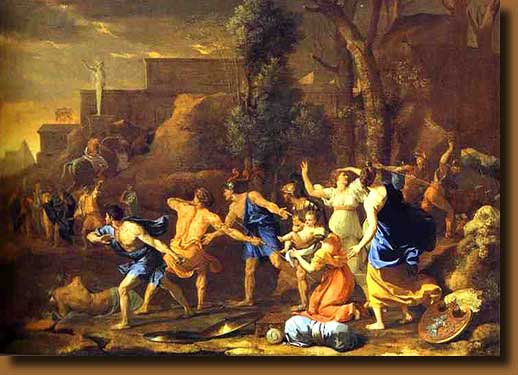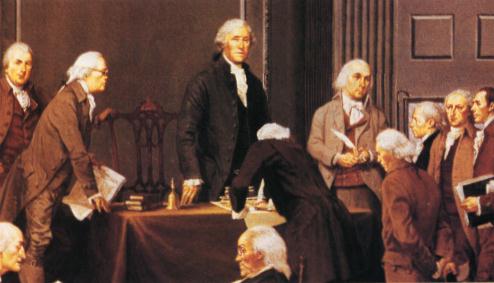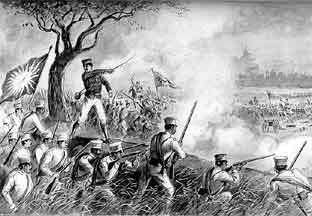Building Vocabulary For College (8th Edition).

Chief Executive Officer.

A chief executive officer (CEO) in American English[1] or managing director (MD) in British English[2] describes the position of the most senior corporate officer, executive, leader or administrator in charge of managing an organization. CEOs lead a range of organizations, including public and private corporations, non-profit organizations and even some government organizations (e.g., Crown corporations). The CEO of a corporation or company typically reports to the board of directors and is charged with maximizing the value of the entity,[3] which may include maximizing the share price, market share, revenues, or another element. In the non-profit and government sector, CEOs typically aim at achieving outcomes related to the organization's mission, such as reducing poverty, increasing literacy, etc. Titles also often given to the holder of CEO position include president and chief executive (CE).[4]
504 Absolutely Essential Words.

Advancing Vocabulary Skills.
Elite System.

Elite Systems is a UK video game developer and publisher established in 1984 as Richard Wilcox Software.[1] They are best known for producing home computer conversions of popular arcade games.[2] Elite also published compilations of games on the Hit-Pak label and budget price re-releases on the Encore label.
White Anglo- Saxon Protestant (WASP).

White Anglo-Saxon Protestant (WASP) is an informal, sometimes disparaging term[1] for a closed social group of high-status and influential White Americans of English Protestant ancestry. The term applies to a group who control disproportionate financial, political and social power in the United States.[2]
Scholars agree that the group's influence has waned since the end of World War II in 1945, with the growing influence of other ethnic groups.[3] The term is also used in Australia and Canada for similar elites.[4][5][6] The term is occasionally used by sociologists to include all Americans of Northern European ancestry regardless of their class or power.[7]People rarely call themselves WASPs, except humorously.[8] The acronym is typically used by non-WASPs.
Al Gore Presidential Campaign, 2000.

The 2000 presidential campaign of Al Gore, 45th Vice President of the United States under Bill Clinton, began when he announced his candidacy for the presidency of the United States in Carthage, Tennessee on June 16, 1999. Gore became the nominee of the Democratic Party for the 2000 presidential election on August 17, 2000. Victory in the general election would have made Gore the first Democrat since the Civil War to succeed another Democrat to the Presidency by election in his own right.
On November 7, 2000, projections indicated that Gore's opponent, George W. Bush, had narrowly won the election. Gore won the national popular vote but lost the electoral college vote after a bitter legal battle over disputed vote counts in the state of Florida. Bush won the election on the electoral college vote of 271 to 266. One elector pledged to Gore did not cast an electoral vote; Gore received 267 pledged electors. The election was one of the most controversial in American history.[1][2]
Electoral College (United States).

The United States Electoral College is the body that elects the President and Vice President of the United States every four years. Citizens of the United States do not directly elect the president or the vice president; instead they choose "electors", who usually pledge to vote for particular candidates.[1][2][3]
Electors are apportioned to each of the 50 states as well as to the District of Columbia. The number of electors in each state is equal to the number of members of Congress to which the state is entitled,[4] while the Twenty-third Amendment grants the District of Columbia the same number of electors as the least populous state, currently three. Therefore, there are currently 538 electors, corresponding to the 435 Representatives and 100 Senators, plus the three additional electors from the District of Columbia. The Constitution bars any federal official, elected or appointed, from being an elector.
Florida.

Florida  i/ˈflɒrɪdə/ (Spanish for "land of flowers") is a state located in the southeastern region of the United States. The state is bordered to the west by the Gulf of Mexico, to the north by Alabama and Georgia, to the east by the Atlantic Ocean, and to the south by the Straits of Florida and Cuba. Florida is the 22nd most extensive, the 3rd most populous,[8] and the 8th most densely populated of the United States. Jacksonville is the most populous city in Florida, and the largest city by area in the contiguous United States. The Miami metropolitan area is the eighth-largest metropolitan area in the United States. Tallahassee is the state capital.
i/ˈflɒrɪdə/ (Spanish for "land of flowers") is a state located in the southeastern region of the United States. The state is bordered to the west by the Gulf of Mexico, to the north by Alabama and Georgia, to the east by the Atlantic Ocean, and to the south by the Straits of Florida and Cuba. Florida is the 22nd most extensive, the 3rd most populous,[8] and the 8th most densely populated of the United States. Jacksonville is the most populous city in Florida, and the largest city by area in the contiguous United States. The Miami metropolitan area is the eighth-largest metropolitan area in the United States. Tallahassee is the state capital.
A peninsula between the Gulf of Mexico, the Atlantic Ocean, and the Straits of Florida, it has the longest coastline in the contiguous United States, approximately 1,350 miles (2,170 km), and is the only state that borders both the Gulf of Mexico and the Atlantic Ocean. Much of the state is at or near sea level and is characterized by sedimentary soil. The climate varies from subtropical in the north to tropical in the south.[9] The American alligator, American crocodile, Florida panther, and manatee can be found in the Everglades National Park.
Abraham Lincoln.

Abraham Lincoln ( i/ˈeɪbrəhæm ˈlɪŋkən/; February 12, 1809 – April 15, 1865) was an American politician and lawyer who served as the 16th President of the United States from March 1861 until his assassination in April 1865. Lincoln led the United States through its Civil War—its bloodiest war and its greatest moral, constitutional, and political crisis.[2][3] In doing so, he preserved the Union, abolished slavery, strengthened the federal government, and modernized the economy.
i/ˈeɪbrəhæm ˈlɪŋkən/; February 12, 1809 – April 15, 1865) was an American politician and lawyer who served as the 16th President of the United States from March 1861 until his assassination in April 1865. Lincoln led the United States through its Civil War—its bloodiest war and its greatest moral, constitutional, and political crisis.[2][3] In doing so, he preserved the Union, abolished slavery, strengthened the federal government, and modernized the economy.
Born in Hodgenville, Kentucky, Lincoln grew up on the western frontier in Kentucky and Indiana. Largely self-educated, he became a lawyer in Illinois, a Whig Party leader, and was elected to the Illinois House of Representatives, in which he served for eight years. Elected to the United States House of Representatives in 1846, Lincoln promoted rapid modernization of the economy through banks, tariffs, and railroads. Because he had originally agreed not to run for a second term in Congress, and because his opposition to the Mexican–American War was unpopular among Illinois voters, Lincoln returned to Springfield and resumed his successful law practice. Reentering politics in 1854, he became a leader in building the new Republican Party, which had a statewide majority in Illinois. In 1858, while taking part in a series of highly publicized debates with his opponent and rival, Democrat Stephen A. Douglas, Lincoln spoke out against the expansion of slavery, but lost the U.S. Senate race to Douglas.
YOLO.

YOLO is an acronym for "you only live once". Similar to Latin "carpe diem" ("seize the day"), it implies that one should enjoy life, even if that entails taking risks, as if there would not be another chance for it. The phrase and acronym are both used in youth culture and music, and were both popularized by the 2011 song "The Motto" by rapper Drake. In the 20th century, the phrase, "you only live once" was commonly attributed to comedian and actor Mae West.[2][3]In the early 21st century, the acronym "YOLO" and the phrase, "you only live once" became a staple of music and youth culture.[4] The acronym has been a subject of graffiti,[5][6][7][8] Twitter hashtags,[9] pranks,[10][11] tattoos,[12] music, television shows, and merchandise.[13]
About "YOLO, Man!" 's Video.
Penelope Weaving.

Penelope.

In Homer's Odyssey, Penelope (/pəˈnɛləpiː/ pə-nel-ə-pee; Greek: Πηνελόπεια, Pēnelópeia, or Πηνελόπη, Pēnelópē) is the wife of Odysseus, who is known for her faithfulness to Odysseus while he is absent, despite having many suitors.
Her name has traditionally been associated with marital faithfulness,[1] and so it was with the Greeks and Romans, but some recent feminist readings offer a more ambiguous interpretation.[2] Her character is beyond what was available to most women at the time, and she is considered a match for Odysseus due to her immense strength, warmth and intelligence. [3]
The Sword of Damocles.

Damocles (/ˈdæməkliːz/; Greek: Δαμοκλῆς Dāmoklē̂s, literally: "fame of the people") is a figure featured in a single moral anecdote commonly referred to as "the Sword of Damocles",[1][2] an allusion to the imminent and ever-present peril faced by those in positions of power. The Damocles of the anecdote was an obsequious courtier in the court of Dionysius II of Syracuse, a 4th-century BC tyrantof Syracuse, Sicily.
The anecdote apparently figured in the lost history of Sicily by Timaeus of Tauromenium (c. 356–260 BC). The Roman orator Ciceromay have read it in Diodorus Siculus. He made use of it in his Tusculanae Disputationes, V. 21,[1] by which means it passed into the European cultural mainstream.
Pyrrhus of Epirus.

Pyrrhus (/ˈpɪrəs/; Πύρρος, Pyrrhos; 319/318–272 BC) was a Greek general and statesman of the Hellenistic period.[1][2][3][4] He was king of the Greek tribe of Molossians,[3][5] of the royal Aeacid house (from c. 297 BC),[6] and later he became king of Epirus (r. 306–302, 297–272 BC) and Macedon (r. 288–284, 273–272 BC).[citation needed] He was one of the strongest opponents of early Rome. Some of his battles, though successful, caused him heavy losses, from which the term Pyrrhic victory was coined. He is the subject of one of Plutarch's Parallel Lives.
Pyrrhic Victory.

A Pyrrhic victory is a victory that inflicts such a devastating toll on the victor that it is tantamount to defeat. Someone who wins a Pyrrhic victory has been victorious in some way. However, the heavy toll negates any sense of achievement or profit. The phrase Pyrrhic victory is named after king Pyrrhus of Epirus, whose army suffered irreplaceable casualties in defeating the Romans at Heraclea in 280 BC and Asculum in 279 BC during the Pyrrhic War. After the latter battle, Plutarch relates in a report by Dionysius:
Vocabulary.
1. anti-

Definition
prefix.
1. against; opposing→ anticlerical, →antisocial2. opposite to→ anticlimax, → antimere
3. rival; false → antipope
Example Sentences: Having pinned so much on his visit, Webb hoped it wouldn't be an anti-
2. Anti Magnetic.

Definition: Adjective
- of or constructed of a material that does not acquire permanent magnetism when exposed to a magnetic field
→ an anti magnetic watch
Example Sentences: The lead man wears a silver bunny suit that's anti magnetic, and he does look ghostly.
3. Antibodies.

Pronunciation: æntɪˌbɒdɪ
Definition: Noun plural - bodies
any of various proteins produced in the blood in response to the presence of an antigen. By becoming attached to antigens on infectious organisms antibodies can render them harmless or cause them to be destroyed.
Examples Sentences: Antibodies are substances which a person's or an animal's body produces in their blood in order to destroy substances which carry disease.
4. Actuary.

Pronunciation: æktʃʊərɪ
Definition: Noun plural - aries
a person qualified to calculate commercial risks and probabilities involving uncertain future events, esp in such contexts as life assurance.
Examples Sentences: Other girls had intended to be other things: an actuary, a kindergarten teacher, a housewife, an archeologist, a newspaper reporter.
5. -ary.
Definitions
suffix
1. (forming adjectives) of; related to; belonging to
→ cautionary, → rudimentary
2. (forming nouns)
a. a person connected with or engaged in → missionary
b. a thing relating to; a place for → commentary, →aviary
Examples Sentences: Roads were rudimentary in many places, and maps were inadequate.
6. Executive.

Pronunciation: ɪɡˈzɛkjʊtɪv
Definition: Noun
1. a. a person or group responsible for the administration of a project, activity, or business.
2. ( as modifier) → executive duties, → an executive position
Examples Sentences: I've got a valid visa, I've even got a credit as executive producer.
7. Amendment.

Pronunciation: əˈmɛndmənt
Definition: Noun
1. the act of amending; correction
2. an addition, alteration, or improvement to a motion, document, etc.
Examples Sentences: It was only wen we got to Portugal that you announced your own little amendment to the plan.
8. Impeachment.

Pronunciation: ɪmˈpiːtʃmənt
Definition: Noun
1. rare (in England) committal by the House of Commons, esp of a minister of the Crown, for trial by the House of Lords. The last instance occurred in 1805.
2. an accusation or charge.
Examples Sentences: There are grounds for impeachment.
9. Lame Duck.

Definition: Noun
1. a person or thing that is disabled or ineffectual.
2. stock exchange a speculator who cannot discharge his or her liabilities.
Examples Sentences: Was The Lady sending her a wounded male, a lame duck for her to cure?
10. Lame.

Pronunciation: leɪm
Definition: adjective
1. disabled or crippled in the legs or feet
2. painful or weak → a lame duck
Examples Sentences: A lame beggar hopped like a frog towards the door of the inn.
11. Weaken.

Pronunciation: wiːkən
Definition: Verb
to became or cause to become weak or weaker.
Examples Sentences: The first thing any civil administration will want to do is weaken the army.
12. Gerrymander.

Pronunciation: dʒɛrɪˌmændə
Definition: Verb
1. to divide the constituencies of (voting area) so as to give one party an unfair advantage.
2. to manipulate or adapt to one's advantage.
Examples Sentences: The political party hoped to gerrymander by changing the geographical borders of the voting areas.
13. Diverts.

Pronunciation: daɪˈvɜːt
Definition: Verb
1. to turn (a person or thing) aside from a course; deflect
2. ( transitive) to entertain; amuse
Examples Sentences: My brother must have had it moved across the harbor basin to the fishermen's wharf to divert suspicion.
14. Successful.

Pronunciation: səkˈsɛsfʊl
Definition: Adjective
1. having succeeded in one's endeavours.
2. marked by a favourable outcome.
Examples Sentences: Seven years ago Christopher Barrons was a successful computer programmer with a drinking problem.
15. Successive.

Pronunciation: səkˈsɛsɪv
Definition: Adjective
1. following another without interruption
2. of or involving succession → a successive process
Examples Sentences: As each successive baby had been born, she herself had taken on its rearing.
16. Predecessor.

Pronunciation: priːdɪˌsɛsə
Definition: Noun
1. something that precedes something else
2. an ancestor; forefather
Examples Sentences: I expect you all remember, my predecessor tried to stop them being delivered in the first place.
17. Ratified

Pronunciation: rætɪˌfaɪ
Definition: Verb -fies, -fying or -fied
( transitive) to give formal approval or consent to
Examples Sentences: Playing jazz is one area of my life where I don't need an audience to ratify and applaud my endeavours.
18. Mend.

Pronunciation: mɛnd
Definition: Verb
1. (transitive) to repair (something broken or unserviceable)
2. the act of repairing
Examples Sentences: The little girl said, 'Mum said you "ll mend my doggie bell.
19. Evolve.

Pronunciation: ɪˈvɒlv
Definition: Verb
1. to develop or cause to develop gradually.
2. (transitive) (of animal or plant species) undergo evolution.
Examples Sentences: Living forms evolve through chance, through mutations scientific terminology for the play of chance.
20. Absorb.

Pronunciation: əbˈsɔːb
Definition: Verb (transitive)
1. to soak or suck up (liquids)
2. to receive or take in (the energy of an impact)
Examples Sentences: It needs only a few minutes for the rubber indicators to absorb moisture.
21. Invade.

Pronunciation: ɪnˈveɪd
Definition: Verb
1. to enter (a country, territory, etc) by military force
2. (transitive) to occupy in large numbers; overrun; infest
Examples Sentences: If the Germans invade Poland, I would be relieved of all of them.
22. Steal.

Pronunciation: stiːl
Definition: Verb
1. to take (something) from someone, etc without permission or unlawfully,esp in a secret manner.
2. (transitive) to obtain surreptitiously
Examples Sentences: The joke would be on us if he managed to steal the statue back.
23. Patriarchy.

Pronunciation: peɪtrɪˌɑːkɪ
Definition: Noun plural -chies
1. a form of social organization in which a male is the head of the family and descent, kinship, and title are traced through the male line.
2. any society governed by such a system.
Examples Sentences: The patriarchy was out in full force when she entered the tailor shop.
24. Matriarchy.

Pronunciation: ˈmeɪtrɪˌɑːkɪ
Definition: Noun plural -chies
1. a form of social organization in which a female is head of the family or society, and descent and kinship are traced through the female line.
2. any society dominated my women.
Examples Sentences: Some tribes were endogamic, and there matriarchy was the rule,descent being traced through the female line.
25. -archy.
Definition: combining form in countable noun
government; rule → anarchy, → monarchy
Examples Sentences: Feet with less archy bottoms.
26. Comp.

Pronunciation: kɒmp
Definition: Noun
1. A Compositor.
2. An Accompaniment.
3. A Competition.
Examples Sentences: They keep turning up at the library even now the story comp's finished.
沒有留言:
張貼留言